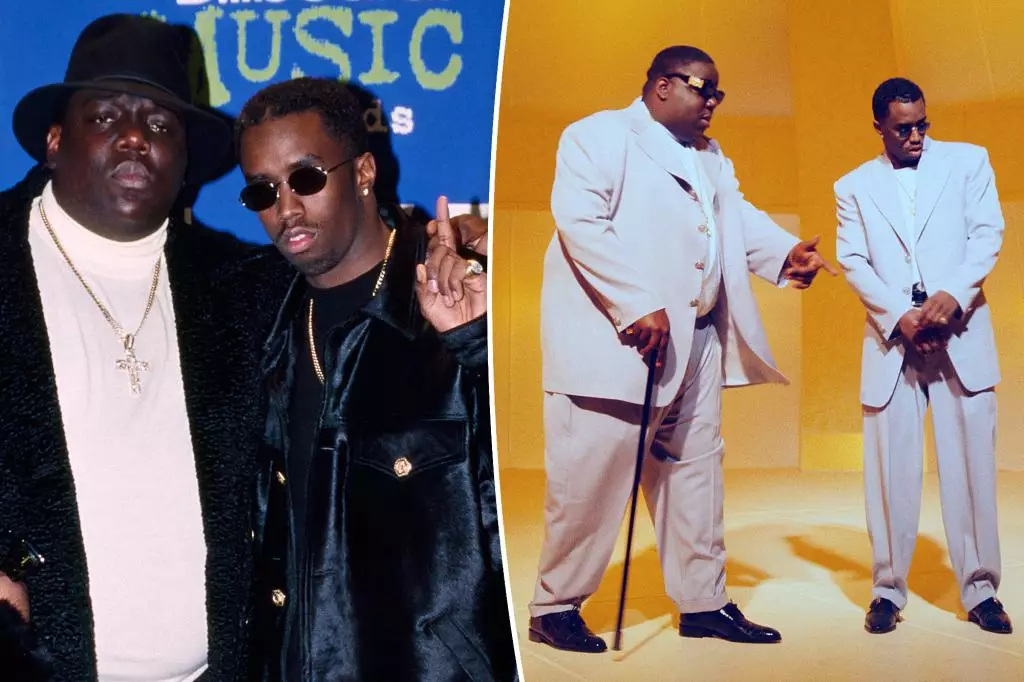In the hyper-glamorized world of fame, figures like Sean “Diddy” Combs often operate under a dazzling veneer of success, wealth, and influence. Yet, beneath this glossy surface lies a complex web of allegations, accusations, and public perceptions that challenge the integrity of their personas. The recent lawsuits against Combs serve as stark reminders that even the most celebrated icons are not immune to scrutiny, no matter how fortified they seem by fame and legal triumphs. While many commentators may dismiss accusations or consider them as efforts to tarnish a successful career, it is essential to examine the nuances that make such allegations both compelling and problematic.
## The Impact of Allegations on Personal and Public Identity
It is tempting to perceive accusations of sexual misconduct as solely damaging to a person’s reputation. However, this perspective oversimplifies the profound implications these claims hold for both the accused and the societal structures that evaluate them. In Combs’ case, the juxtaposition of recent legal victories with new allegations raises questions about the societal tendency to scrutinize shortly after someone has been exonerated or acquitted. Does victory in court absolve a person entirely, or does it merely temporarily shield them from legal repercussions, while the court of public opinion continues to pass judgment?
Furthermore, allegations rooted in serious accusations such as sexual misconduct or assault do not exist in a vacuum—they influence how individuals are viewed culturally and professionally. The denouncement or defense of such claims often hinges on deeply ingrained biases, societal narratives, and the inherently complex nature of human behavior and accountability. While some interpret these allegations as incontrovertible truths, others see them as part of a larger narrative that warrants cautious and careful consideration rather than instant condemnation.
## The Legal and Moral Dimensions of Accountability
The legal system’s role in interrogating and adjudicating accusations is undoubtedly crucial; however, it often offers only a partial reflection of moral and ethical accountability. In the case of Combs, his prior legal acquittal of trafficking and racketeering charges appeared to have temporarily solidified his innocence in the eyes of many. Yet, the emergence of new lawsuits compels us to question whether victory in court truly signifies moral exoneration or if it simply highlights the limitations of legal proceedings in addressing complex allegations.
Moreover, allegations like those described—though extraordinarily provocative—prompt a broader societal debate about the mechanisms we possess for holding public figures accountable outside of the courtroom. Is the legal process sufficient to address such claims, or do we need a more holistic approach that considers behavioral patterns, societal influence, and the possibility of accountability through other forms of societal or organizational discipline? It is also essential to remember that accusations, especially when unverified or embroiled in controversy, risk damaging reputations irreparably, regardless of their factual accuracy.
## The Power of Celebrity and the Weaponization of Allegations
Fame confers significant influence, but it can also make individuals vulnerable to weaponization. The case of Combs illustrates how allegations—whether grounded in truth or malice—can serve as tools in broader cultural battles. When accusations surface amidst legal victories or public praise, they challenge the coherence between a celebrity’s reputation and their alleged actions.
The power dynamics at play point to a disturbing aspect of celebrity culture: the ease with which accusations can overshadow achievements, or conversely, the tendency to dismiss claims when they seem to threaten lucrative or favorable public narratives. This duality underscores a societal tendency to both idolize and scrutinize public figures, often simultaneously, leading to a volatile landscape where assumptions are made rapidly, and nuanced understanding is often sacrificed.
## The Cultural Cost of Justice and Fairness
Perhaps most importantly, these sensational allegations expose the cultural cost of balancing justice with fairness. The media narrative tends to oscillate between hyperbole and dismissiveness, contributing to a fractured societal understanding of accountability. While victims deserve to be heard and protected, the presumption of innocence until proven guilty remains a core democratic principle that must be safeguarded, especially when allegations threaten to derail reputations amid unverified claims.
The case of Combs highlights how difficult it is to strike the right balance. While some view the allegations as evidence of degeneracy or abuse of power, others approach them skeptically, emphasizing the importance of proof and due process. Society’s challenge lies in navigating this complex debate without succumbing to bias or prejudice, while also ensuring that justice, fairness, and compassion are not sacrificed in pursuit of expediency.
In the end, the controversy surrounding Sean Combs embodies the ongoing struggle to reconcile fame’s allure with our collective need for accountability and justice. It forces us to reflect on the societal values we uphold, the standards we expect of those in power, and the delicate dance between innocence and guilt in a cultural landscape obsessed with spectacle.

